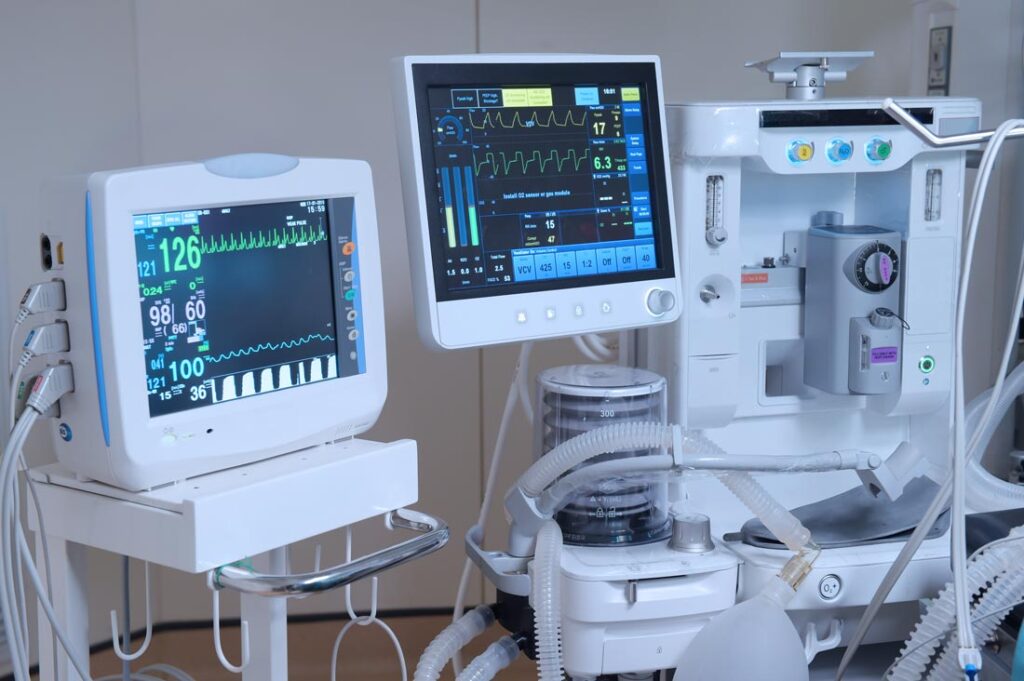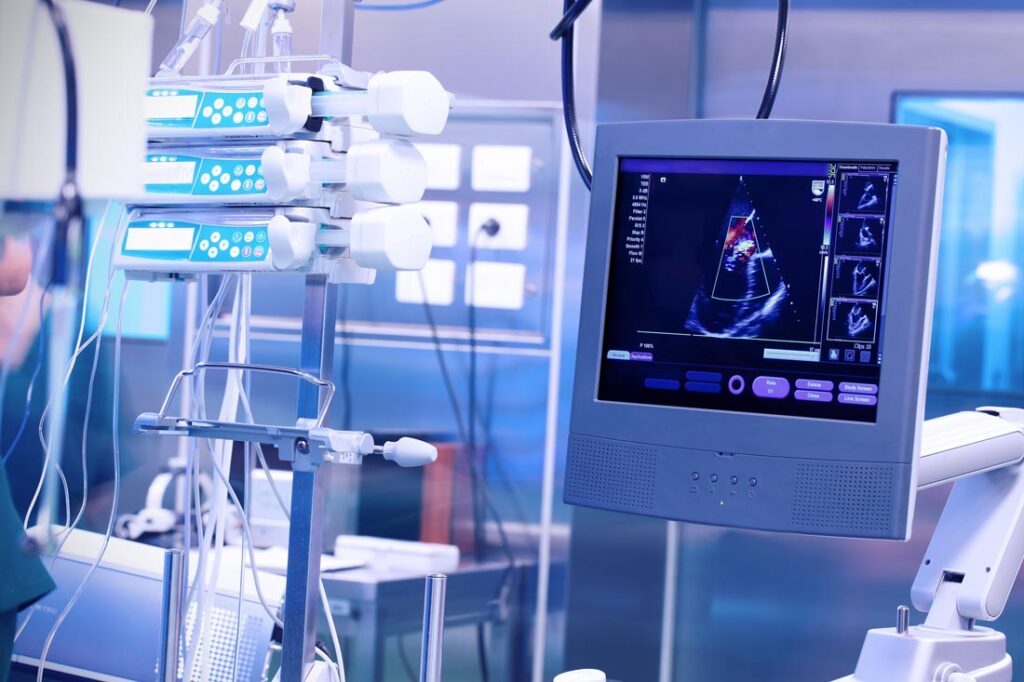
The medical device industry stands as a beacon of innovation in healthcare systems, harnessing technological advancements to improve patient care worldwide. From life-saving medical equipment to everyday health monitors, the industry plays a pivotal role in modern medicine.
Yet, with great innovation comes great challenges, especially in navigating the complexities of medical device manufacturing, quality control, and compliance with stringent regulations. This is where Enterprise Resource Planning (ERP) systems come into play. ERP offers a streamlined, efficient approach to managing the intricate demands of the medical devices industry.
Let’s dive into the dynamic world of medical device manufacturing and explore how ERP systems are becoming the backbone of operational success.
Understanding the Medical Device Industry Landscape
Medical Device Industry Overview
The global medical device market is a vital component of the healthcare sector, contributing significantly to advancements in medical care and patient outcomes. Medtech companies, ranging from startups to multinational corporations, develop a wide array of medical products, each designed to meet specific healthcare needs.
This industry is not just about creating devices; it’s about pushing the boundaries of what’s possible in life science and medical treatment.
Trends in the Medical Device Industry
Recent trends in the medical device industry reflect a sector in constant evolution, driven by rapid technological advancements and changing healthcare demands. Key trends include:
- Digitalization: The integration of digital technologies into medical devices, enhancing their capabilities and enabling remote monitoring and diagnostics.
- Personalization: The move towards customized medical solutions tailored to individual patient needs, improving outcomes and patient satisfaction.
- Global Expansion: With healthcare systems worldwide striving to improve patient care, the demand for innovative medical devices continues to grow, expanding the reach of medtech companies into new markets.
Challenges in the Medical Device Industry
Despite its potential for innovation and growth, the medical device industry faces several significant challenges:
- Regulatory Compliance: Navigating the complex landscape of medical device regulations requires meticulous attention to detail and a proactive approach to compliance.
- Quality Control: Maintaining the highest quality standards is essential, given the direct impact of medical devices on patient health and safety.
- Innovation vs. Cost: Balancing the drive for innovation with the need to manage costs and remain competitive in the market is a constant struggle for medical device companies.
Why ERP is Critical for Medical Device Companies

ERP systems offer a solution to many of the challenges faced by the medical device industry. By integrating various aspects of business operations, from manufacturing processes to quality control and compliance, ERP systems provide a comprehensive platform for managing the complexities of medical device production.
Here’s why ERP is indispensable for medical device companies:
- Streamlined Operations: ERP for the medical device industry automates and optimizes manufacturing processes, ensuring that medical products are produced efficiently and meet the highest quality standards.
- Regulatory Compliance: With built-in compliance features, ERP systems help companies adhere to medical device regulations, reducing the risk of costly penalties and product recalls.
- Innovation Support: ERP systems facilitate product development by providing tools for project management and collaboration, allowing medtech companies to bring new, innovative medical devices to market more quickly.
Best Practices for ERP Implementation
Implementing an ERP system in the medical device industry can seem daunting. However, following these best practices can streamline the process, ensuring that medical device companies fully leverage ERP’s benefits:
- Comprehensive Needs Assessment: Start with a detailed analysis of your company’s specific needs. Consider everything from manufacturing processes to compliance requirements and quality control measures. Understanding these needs helps in selecting an ERP system tailored to the unique challenges of medical manufacturing.
- Choosing the Right ERP Solution: Not all ERP systems are created equal, especially when it comes to the specialized demands of the medical devices industry. Look for ERP solutions that offer:
- Flexibility to adapt to the fast-paced nature of technological advancements in the medtech industry.
- Features that support compliance with medical device regulations, ensuring that your products meet global quality standards.
- Scalability to grow with your business, accommodating new product lines and expansion into new markets.
- Engaging Stakeholders Early: Getting buy-in from all levels of the organization is crucial. Engage stakeholders from across departments—manufacturing, sales, marketing, and especially those involved in quality control and regulatory compliance—to ensure the ERP system meets everyone’s needs.
- Focusing on Quality Control and Compliance: The ERP system should enhance your ability to maintain high quality standards and adhere to medical device regulations. Implement features that automate documentation, traceability, and quality checks throughout the manufacturing process.
- Training and Support for Users: A successful ERP implementation doesn’t end with going live. Comprehensive training for users is essential to ensure they can make the most of the system’s features. Additionally, ongoing support from the ERP vendor can help resolve any issues quickly, minimizing disruptions to business operations.
Leveraging ERP for Competitive Advantage in the Medtech Industry
In the highly competitive medtech industry, ERP systems can be a game-changer, offering companies a significant competitive edge by:
- Enhancing Efficiency: By automating routine tasks and streamlining manufacturing processes, ERP systems help medical device companies operate more efficiently, freeing up resources to focus on innovation and growth.
- Accelerating Product Development: With project management tools and real-time data, ERP systems can speed up the development cycle of new medical products, allowing companies to bring innovations to market faster.
- Integrating Data Across Departments: ERP systems break down silos within an organization, fostering better communication and collaboration. This integration can lead to more informed decision-making and strategic planning, crucial for staying ahead in the global medical device market.
Key Considerations for Medical Device Companies
When implementing an ERP system, medical device manufacturers must consider:
- Data Security: Given the sensitive nature of medical products and patient information, ensuring the ERP system has robust security features is paramount.
- User Interface and Experience: The ERP system should be user-friendly, with an intuitive interface that encourages adoption across the organization.
- Custom Integrations: Consider the potential need for integrating the ERP system with other technological tools or platforms your company uses, enhancing functionality and efficiency.
The Bottom Line
ERP systems represent a vital tool for the medical device industry, offering solutions to many of the sector’s unique challenges. From streamlining manufacturing processes to ensuring regulatory compliance and fostering innovation, ERP can transform the way medtech companies operate.
By following best practices for implementation and leveraging ERP systems to their full potential, medical device companies can not only navigate the complexities of the industry but also achieve sustainable growth and maintain a competitive edge.
